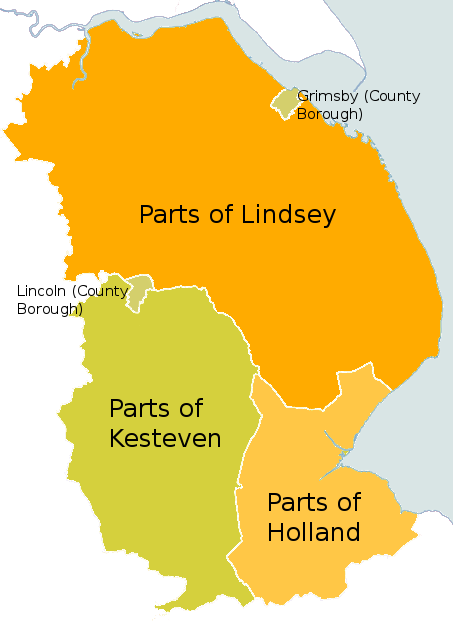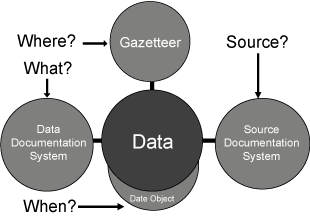|
Lincoln City Council
The City of Lincoln Council is the local authority for the district of Lincoln, in the county of Lincolnshire, England. The council consists of 33 councillors, three for each of the 11 wards in the city. It is currently controlled by the Labour Party, led by Ric Metcalfe. The administrative headquarters is at Lincoln City Hall although council meetings are held at the guildhall. History The city of Lincoln had been an ancient borough and was made a county corporate in 1409 with its own court of quarter sessions, making it independent from the Lindsey Quarter Sessions. The borough corporation was reformed under the Municipal Corporations Act 1835 to become a municipal borough. When elected county councils were established under the Local Government Act 1888 to take over the local government functions of the quarter sessions, Lincoln retained its independence, becoming a county borough, therefore running independently from Lindsey County Council. On 1 April 1974, under the Lo ... [...More Info...] [...Related Items...] OR: [Wikipedia] [Google] [Baidu] |
2022 City Of Lincoln Council Election
The 2022 City of Lincoln Council election took place on 5 May 2022 to elect members of City of Lincoln Council in Lincolnshire, England. This was held on the same day as other 2022 United Kingdom local elections, local elections. Results summary Ward results Abbey Birchwood Boultham Carholme Castle Glebe Hartsholme Minster Moorland Park Witham References {{Lincolnshire elections 2022 English local elections, Lincoln City of Lincoln Council elections, 2022 2020s in Lincolnshire May 2022 events in the United Kingdom ... [...More Info...] [...Related Items...] OR: [Wikipedia] [Google] [Baidu] |
Municipal Borough
Municipal boroughs were a type of local government district which existed in England and Wales between 1835 and 1974, in Northern Ireland from 1840 to 1973 and in the Republic of Ireland from 1840 to 2002. Broadly similar structures existed in Scotland from 1833 to 1975 with the reform of royal burghs and creation of police burghs. England and Wales Municipal Corporations Act 1835 Boroughs had existed in England and Wales since mediæval times. By the late Middle Ages they had come under royal control, with corporations established by royal charter. These corporations were not popularly elected: characteristically they were self-selecting oligarchies, were nominated by tradesmen's guilds or were under the control of the lord of the manor. A Royal Commission was appointed in 1833 to investigate the various borough corporations in England and Wales. In all 263 towns were found to have some form of corporation created by charter or in existence time immemorial, by prescription. ... [...More Info...] [...Related Items...] OR: [Wikipedia] [Google] [Baidu] |
City Of Lincoln Council Elections
One third of the City of Lincoln Council in Lincolnshire, England is elected each year, followed by one year when there is an election to Lincolnshire County Council instead. The council is divided up into 11 wards, electing 33 councillors, since the last boundary changes in 2007. Political control Prior to 1974, Lincoln was a county borough, independent from any county council. Under the Local Government Act 1972 it became a non-metropolitan district, with Lincolnshire County Council providing county-level services in the city. The first election to the reconstituted city council was held in 1973, initially operating as a shadow authority before coming into its powers on 1 April 1974. Political control of the council since 1973 has been held by the following parties: Leadership The leaders of the council since 2008 have been: Council elections * 1973 City of Lincoln Council election * 1976 City of Lincoln Council election * 1979 City of Lincoln Council election (New ward ... [...More Info...] [...Related Items...] OR: [Wikipedia] [Google] [Baidu] |
Legislation
Legislation is the process or result of enrolled bill, enrolling, enactment of a bill, enacting, or promulgation, promulgating laws by a legislature, parliament, or analogous Government, governing body. Before an item of legislation becomes law it may be known as a bill (proposed law), bill, and may be broadly referred to as "legislation" while it remains under consideration to distinguish it from other business. Legislation can have many purposes: to regulate, to authorize, to outlaw, to provide (funds), to sanction, to grant, to declare, or to restrict. It may be contrasted with a non-legislative act by an Executive (government), executive or administrative body under the authority of a legislative act. Overview Legislation is usually proposed by a member of the legislature (e.g. a member of Congress or Parliament), or by the executive, whereupon it is debated by members of the legislature and is often amended before passage (legislature), passage. Most large legislatures enact ... [...More Info...] [...Related Items...] OR: [Wikipedia] [Google] [Baidu] |
Lincolnshire County Council
Lincolnshire (abbreviated Lincs.) is a Counties of England, county in the East Midlands of England, with a long coastline on the North Sea to the east. It borders Norfolk to the south-east, Cambridgeshire to the south, Rutland to the south-west, Leicestershire and Nottinghamshire to the west, South Yorkshire to the north-west, and the East Riding of Yorkshire to the north. It also borders Northamptonshire in the south for just , England's shortest county boundary. The county town is Lincoln, England, Lincoln, where the county council is also based. The Ceremonial counties of England, ceremonial county of Lincolnshire consists of the non-metropolitan county of Lincolnshire and the area covered by the unitary authority, unitary authorities of North Lincolnshire and North East Lincolnshire. Part of the ceremonial county is in the Yorkshire and the Humber region of England, and most is in the East Midlands region. The county is the List of ceremonial counties of England, second-la ... [...More Info...] [...Related Items...] OR: [Wikipedia] [Google] [Baidu] |
Parts Of Lincolnshire
The three parts of the English county of Lincolnshire are or were divisions of the second-largest county in England. Similar in nature to the three ridings of Yorkshire, they existed as local government units until commencement of the Local Government Act 1972. The three parts were: *Lindsey in the north, itself traditionally divided into three ridings (North, South and West); *Kesteven in the south-west; and *Holland in the south-east. The three parts touched in a tripoint somewhere near Chapel Hill. Each of the parts had long had separate county administration (quarter sessions), and each was created a discrete administrative county with its own county council in 1889. This arrangement lasted until 1974, when the three councils were replaced by a single Lincolnshire County Council, with northern Lindsey going to form part of the new County of Humberside (since abolished and replaced south of the Humber with two unitary authorities). Although the parts no longer exist as ... [...More Info...] [...Related Items...] OR: [Wikipedia] [Google] [Baidu] |
Non-metropolitan District
Non-metropolitan districts, or colloquially "shire districts", are a type of local government district in England. As created, they are sub-divisions of non-metropolitan counties (colloquially ''shire counties'') in a two-tier arrangement. Non-metropolitan districts with borough status are known as boroughs, able to appoint a mayor and refer to itself as a borough council. Non-metropolitan districts Non-metropolitan districts are subdivisions of English non-metropolitan counties which have a two-tier structure of local government. Most non-metropolitan counties have a county council and several districts, each with a borough or district council. In these cases local government functions are divided between county and district councils, to the level where they can be practised most efficiently: *Borough/district councils are responsible for local planning and building control, local roads, council housing, environmental health, markets and fairs, refuse collection and recyclin ... [...More Info...] [...Related Items...] OR: [Wikipedia] [Google] [Baidu] |
Local Government Act 1972
The Local Government Act 1972 (c. 70) is an Act of the Parliament of the United Kingdom that reformed local government in England and Wales on 1 April 1974. It was one of the most significant Acts of Parliament to be passed by the Heath Government of 1970–74. Its pattern of two-tier metropolitan and non-metropolitan county and district councils remains in use today in large parts of England, although the metropolitan county councils were abolished in 1986, and both county and district councils have been replaced with unitary authorities in many areas since the 1990s. In Wales, too, the Act established a similar pattern of counties and districts, but these have since been entirely replaced with a system of unitary authorities. Elections were held to the new authorities in 1973, and they acted as "shadow authorities" until the handover date. Elections to county councils were held on 12 April, for metropolitan and Welsh districts on 10 May, and for non-metropolitan distri ... [...More Info...] [...Related Items...] OR: [Wikipedia] [Google] [Baidu] |
A Vision Of Britain Through Time
The Great Britain Historical GIS (or GBHGIS) is a spatially enabled database that documents and visualises the changing human geography of the British Isles, although is primarily focussed on the subdivisions of the United Kingdom mainly over the 200 years since the first census in 1801. The project is currently based at the University of Portsmouth, and is the provider of the website ''A Vision of Britain through Time''. NB: A "GIS" is a geographic information system, which combines map information with statistical data to produce a visual picture of the iterations or popularity of a particular set of statistics, overlaid on a map of the geographic area of interest. Original GB Historical GIS (1994–99) The first version of the GB Historical GIS was developed at Queen Mary, University of London between 1994 and 1999, although it was originally conceived simply as a mapping extension to the existing Labour Markets Database (LMDB). The system included digital boundaries for r ... [...More Info...] [...Related Items...] OR: [Wikipedia] [Google] [Baidu] |
Lindsey County Council
Lindsey County Council was the county council of Parts of Lindsey in the east of England. It came into its powers on 1 April 1889 and was abolished on 1 April 1974. The county council was initially based at the County Hall, Lincoln Castle and then, from 1932, based at the County Offices in Lincoln. It was amalgamated with Holland County Council and Kesteven County Council to form the new Lincolnshire County Council Lincolnshire (abbreviated Lincs.) is a county in the East Midlands of England, with a long coastline on the North Sea to the east. It borders Norfolk to the south-east, Cambridgeshire to the south, Rutland to the south-west, Leicestershire an ... in 1974. References {{Former county councils of England Former county councils of England Local authorities in Lincolnshire Local education authorities in England ... [...More Info...] [...Related Items...] OR: [Wikipedia] [Google] [Baidu] |
County Borough
County borough is a term introduced in 1889 in the United Kingdom of Great Britain and Ireland, to refer to a borough or a city independent of county council control, similar to the unitary authorities created since the 1990s. An equivalent term used in Scotland was a county of city. They were abolished by the Local Government Act 1972 in England and Wales, but continue in use for lieutenancy and shrievalty in Northern Ireland. In the Republic of Ireland they remain in existence but have been renamed ''cities'' under the provisions of the Local Government Act 2001. The Local Government (Wales) Act 1994 re-introduced the term for certain "principal areas" in Wales. Scotland did not have county boroughs but instead had counties of cities. These were abolished on 16 May 1975. All four Scottish cities of the time—Aberdeen, Dundee, Edinburgh, and Glasgow—were included in this category. There was an additional category of large burgh in the Scottish system (similar to a munici ... [...More Info...] [...Related Items...] OR: [Wikipedia] [Google] [Baidu] |


